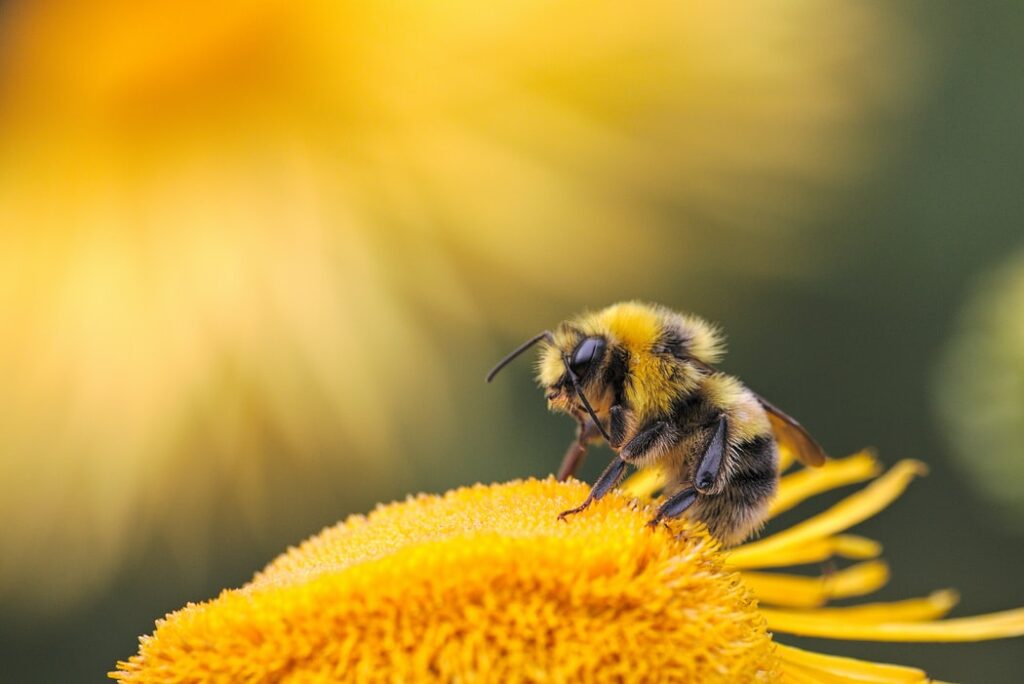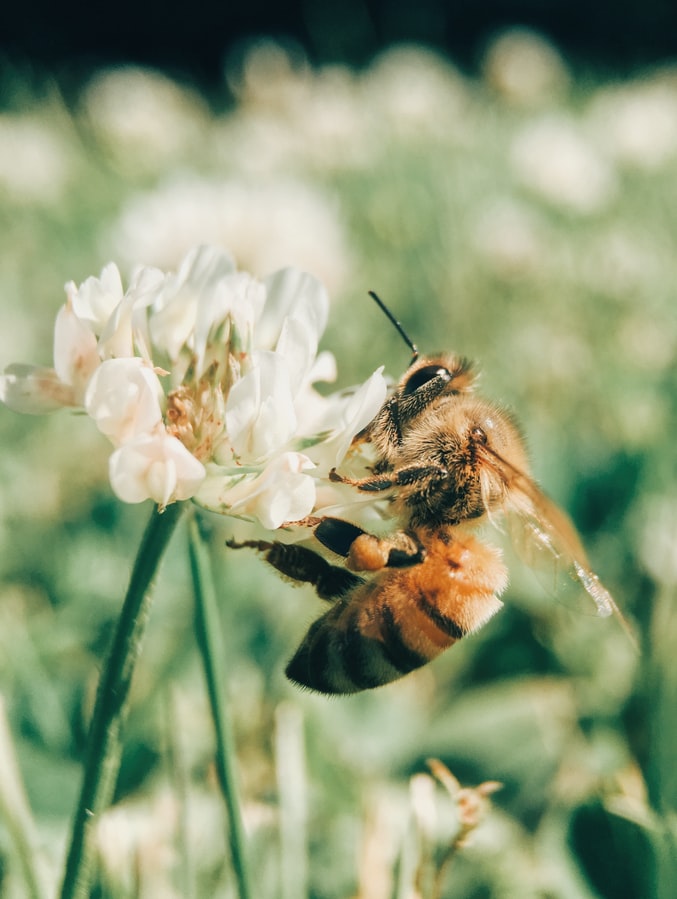The world has lost 90% of its bees. Colombia is no exception, according to investigations by some groups, between 10,000 and 16,000 hives disappear annually. With a bill they try to save them. The Earthwatch Institute made a call.
In the last few days a piece of news has been around the world. The Earthwatch Institute affirmed that bees are the most important living being on the planet. The declaration came at a crucial moment, as many scientists have announced its imminent demise.

Twenty years ago a group of French farmers warned of the abrupt depopulation of their hives. Bees from all the countries of America, Asia, Africa and Europe have disappeared up to 90%, and the reasons are diverse and complex for each area: deforestation, indiscriminate use of pesticides, changes in land use, loss of sites of nesting and flower resources.
Colombia is not the exception. According to research carried out by some beekeeping groups, annually in the country between 10,000 and 16,000 hives disappear. The number of individuals per hive varies between 15,000 and 80,000. In other words, the number of bees killed in a year is exorbitant.
It may interest you: Glyphosate: not only kills weeds, but also bees
According to the Living Bees Collective, in the last three years 34% of bees have died from massive poisoning with pesticides in Colombia. This represents a loss, in the beekeeping sector, of approximately more than 21 billion pesos (partial data between 2014 and 2017). Not counting the damage to other crops that depend on their pollination function.
Bees are crucial for human food. Without them, there would be no life on Earth. Of every 100 food products, 70 depend on their role as pollinators.
“We fled to save our bees”: Francisco Silva
Pacho Silva, as he is known in the beekeeping world, is 70 years old. He approached, for the first time, the wonderful world of bees when he was 15. And although for a time he was in the middle, but not directly in his honey, he returned almost a decade ago to the hive. Upon his return he was met with great threats. The main one, in his opinion, the fumigation of crops.
The use of pesticides, such as glyphosate, are one of the main causes of death for bees. Photo: Pixabay.
“Years ago we lived with coffee. Our bees were among the grain crops and we shared a house with guamos and orange trees, which helped provide shade. But they removed them and left only the coffee that began to need more fumigations to control its pests and, incidentally, they put the bees under threat. Since then we have fled . We try to be at least 30 or 50 thousand kilometers away, ”says Silva.
You can read: SOS bees: pesticides used against pests in coca fields in Bolivia threaten their survival

The beekeeping industry in Colombia, despite the threats, seeks to maintain itself and also sees opportunities. For this reason, they have been running more and more to the mountain to be able to preserve the species and their business . Pacho, who represents the Beekeepers Network (Apired), is one of them. Together with allies, producers and farmers they have understood the importance of keeping Colombian bees.
‘Zumba’ in Congress a bill
The poisoning of 1,500,000 bees in the El Jardín apiary, located in the Morro Azul village, in the municipality of Seville (Valle del Cauca) at the end of last January, once again put the need to safeguard this species in the public arena .
Julio César Campuzano, owner of the El Jardín Factory, reported at the time that those responsible arrived at night and poured a substance similar to cement in 15 hives, each with about 100,000 bees, a situation that caused his immediate death at 30 % of the apiary population.
Traces of poison were found in each hive, so the intervention of criminal hands was not ruled out, which, according to Campuzano, may have acted out of envy or revenge.
We suggest: Create a vaccine to protect bees against the apocalypse
The news inadvertently gave a new air to the bill that seeks that the breeding of bees and pollinators be declared of national interest. This initiative, which is underway in the Senate after having five debates, proposes, among other things, the creation of a National System for the Protection of Bees, Development of Beekeeping and Pollinators that would be in charge of the Ministry of Agriculture, as well as of a National Policy for the Conservation, Protection and Sustainable Use of Pollinators, through which they seek to create zones of concentration of pollinators and regulate the use of agrochemicals, deforestation and the management of bees in urban places.
However, the Living Bees Collective affirmed that during the process in Congress, key articles were eliminated, such as the non-prohibition of the use of some pesticides that are harmful to bees.
“We are concerned because the new version of the project eliminates practically all the mechanisms with real possibilities of monitoring the state of bees and pollinators, stopping their mass death and promoting concrete strategies for their conservation in the national territory. Without these mechanisms, the Law would lose its effectiveness, ” said the Living Bees Collective through a statement.
In the document, the movement assured that Congress had in its hands the opportunity to deliver to Colombian society “a law that modernizes the use of agrochemicals , in keeping with the historical moment we are living due to climate change and the progressive loss of biodiversity in all the world”.
This is how the zones would be
The bill that is expected to be taken up again in the next legislature, contemplates the creation of three zones . It is a concentration one, where pollinators are not affected by human activities. These must be declared by the authorities.
Another would be production, destined to the location of a large number of apiaries , and in the third zone, agricultural producers would have to stay within the framework of their crops to ensure food and shelter for pollinators.
We recommend: Humans killed 60% of wild animals in less than 50 years
“It is of vital importance to establish the strategic nature of the protection and repopulation of bees and other pollinators, since if not to do so in 10 years there would be no bees in Colombia. This would lead to a food catastrophe and a health crisis in the country, ”said Luciano Grisales, representative to the Chamber, and rapporteur for the project.
Why are they the most important beings on the planet?
- A quarter of a million species of flowering plants depend on bees, having a great effect on agriculture, as on many vegetables, including fruit trees, and other crops that we eat every day.
- Bees are the only ones that are free from any pathogens such as viruses, bacteria, fungi. According to the study of the Beekeeping Entrepreneurship Center of the Universidad Mayor (CeapiMayor) and the Apicultural Corporation of Chile (Cach) with the support of the Foundation for Agrarian Innovation (FIA)
- There are more than 20,000 species of bees around the world
